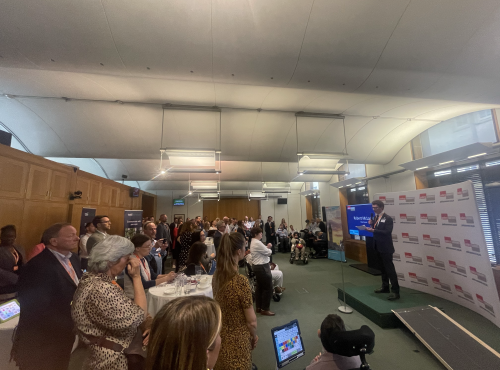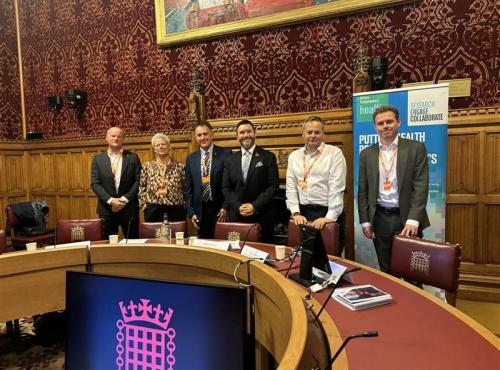Manifesto Insight: What do the Manifesto Pledges Mean for Sustainability Challenges?
Over the past week the UK’s political parties have taken it in turn to publish their manifestos, setting out their key priorities for how they will govern the country if they win the election on June 8. So what do these key documents mean for the sustainable resource sector and the circular economy?
The most conspicuous feature across the manifestos is the emphasis on tackling specific recycling streams. Both Labour and the Greens make commitments to introduce plastic bottle deposit schemes. Labour specifically outline an intention to introduce “guiding targets” and an approach of “working with food manufacturers and retailers”. The Liberal Democrats opt instead to focus on the other much-loved waste problem: coffee cups. They pledge to introduce a 5p charge on their use, following the success of the plastic bag charge.
Both of these pledges are popular with the general public – but many in the industry will almost certainly see past the crowd-pleasing optics and recognise that, to some extent, these policies are a case of style over substance. When it comes to the bigger challenges of improving resource efficiency across the economy, the two biggest political parties are noticeably quiet, with the Conservative manifesto only regarding issues such as recycling through the lens of tackling litter rather than viewing it as part of a wider resource efficient society. It is, however, worth noting the Tories’ recommitment to be “the first generation to leave the environment in a better state than we inherited it” – something the Labour manifesto provocatively describes as a broken promise. Perhaps the most specific pledge of relevance to the sector from the Conservatives is their intention to “produce a comprehensive 25 Year Environment Plan that will chart how we will improve our environment as we leave the European Union and take control of our environmental legislation again.” Accordingly, whilst the manifesto is slim on resource efficiency, it is reasonable to expect that this long-awaited Defra document (the plan was a Cameron-era policy) will have a lot more to say on waste and resources, particularly within the context of Brexit and the future of the Circular Economy Package – provided that they are elected.
The absence of specific references to concepts such as the circular economy from Labour and the Tories stands in stark contrast to the Liberal Democrats, who make a specific pledge to “move towards the so-called circular economy”. This vocal standpoint is matched by the Green Party, who also make a commitment to “create a more circular economy”.
The Greens arguably go one step further than the Lib Dems, and describe their ambition to “promote a culture of reusing” – and although thin on specifics, their language of ‘culture’ seems to reflect a view that a deeper rooted sea-change in public attitudes is needed to deliver circularity, rather than government policy alone.
Of the four parties, however, it is clear that the Liberal Democrats are unquestionably the most specific in outlining their vision for the sustainable resource sector. They pledge to pass a ‘Zero Waste Act’ with “legally-binding targets for reducing net consumption of key natural resources, and introducing incentives for businesses to improve resource efficiency”. They also indicate a firm intention to establish “a statutory waste recycling target of 70% in England and extend separate food waste collections to at least 90% of homes by 2022.”
These ambitious targets could be seen by some in the industry as a reflection of their weaker electoral position – a party with only a handful of MPs can get away with making pledges it might not be able to deliver – but what is more certain is that they are signalling their intention to occupy the political space on the circular economy, and it will be interesting to see if this manoeuvring translates into elevated action in the new Parliament.
If their MPs practice what they preach, we might see the Liberal Democrats as a leading force for scrutinising the new Government on their sustainable resource policies. What remains to be seen, of course, is how many MPs they – and all the parties – will have on the morning of June 9.



